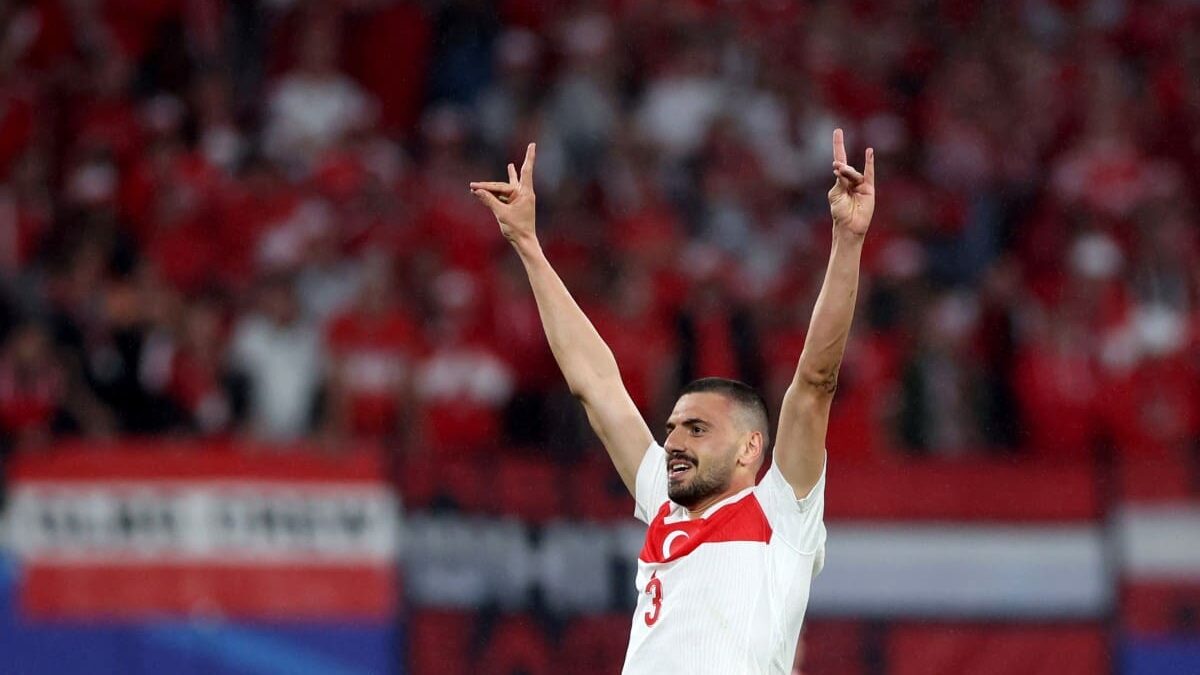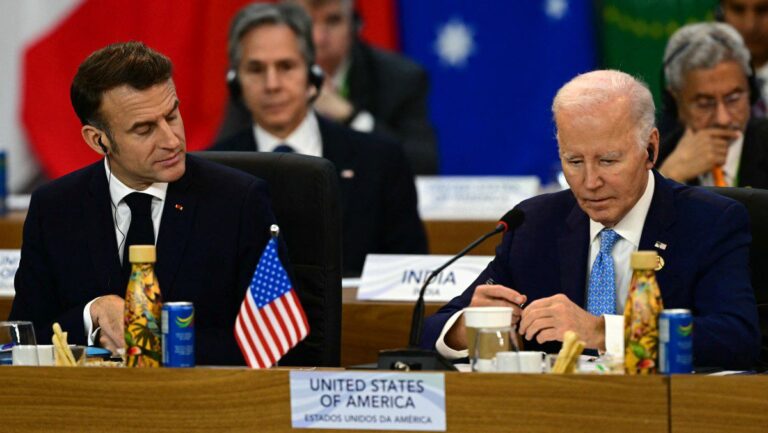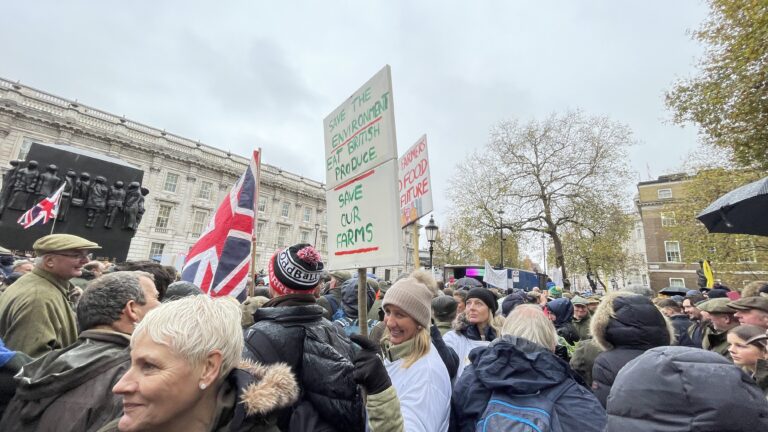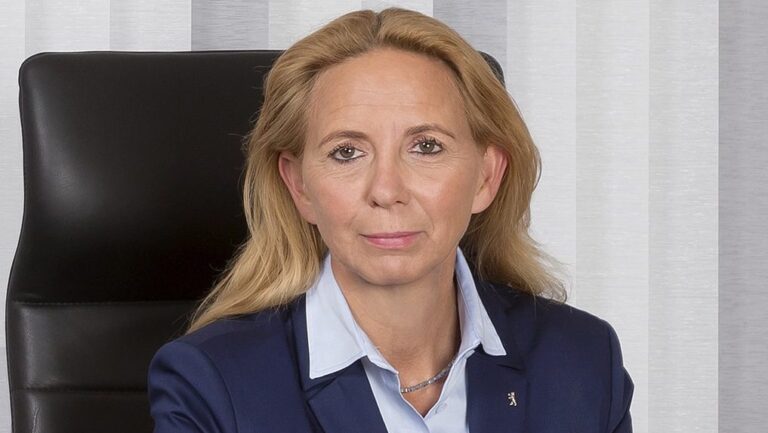Turkish football ultra groups are calling on their fans to “let Berlin become Turkish” as they plan to march in the German capital and make the so-called wolf salute on Saturday—a symbol whose use has caused diplomatic tensions between Berlin and Ankara in recent days. In a sign of heightening tensions between the two countries, and as a response to Germany calling out Turkish “extremism,” Turkish President Recep Tayyip Erdoğan has changed his plans and is set to attend Turkey’s match at the UEFA European Football Championship in Berlin.
The diplomatic spat started when the Turkish national football team’s player Merih Demiral scored two goals against Austria on Tuesday, July 2nd, ran up to the Turkish fans to celebrate, and gave them the ‘wolf salute,’ mimicking the shape of a wolf’s head with his fingers. The gesture is mainly associated with the Grey Wolves, an ultra-nationalist youth branch of Turkey’s Nationalist Movement Party, a political ally of Recep Tayyip Erdoğan’s Justice and Development Party.
The Grey Wolves rose to prominence during the late 1970s political violence in Turkey when its members engaged in urban guerrilla warfare with left-wing militants and activists. The group is outlawed in France and its symbol is banned in Austria. While the wolf salute is not banned in Germany, the group is under surveillance, according to Reuters.
German Interior Minister Nancy Faeser urged the governing body of European football, UEFA, to punish the player for making the gesture, saying: “The symbols of Turkish right-wing extremists have no place in our stadiums. Using the soccer European Championship as a platform for racism is completely unacceptable.” Agriculture Minister Cem Özdemir, a German politician of Turkish descent, said Demiral’s gesture is “extreme right” and “stands for terror, fascism.”
Die Symbole türkischer Rechtsextremisten haben in unseren Stadien nichts zu suchen. Die Fußball-Europameisterschaft als Plattform für Rassismus zu nutzen, ist völlig inakzeptabel. Wir erwarten, dass die UEFA den Fall untersucht und Sanktionen prüft.https://t.co/65yoSUAAQJ
— Nancy Faeser (@NancyFaeser) July 3, 2024
UEFA did indeed open an investigation, and on Friday announced it is suspending Merih Demiral for two matches, meaning the player will not be able to take part in Turkey’s quarter-final match against the Netherlands on Saturday. UEFA said it banned Demiral “for failing to comply with the general principles of conduct, for violating the basic rules of decent conduct, for using sports events for manifestations of a non-sporting nature and for bringing the sport of football into disrepute.”
Demiral himself said his gesture was an innocent expression of his national pride and that there was “no hidden message or anything of the sort.”
It has to do with this Turkish identity, because I’m very proud to be a Turk. And I felt that to the fullest after the second goal. So that’s how I ended up doing that gesture. I’m very happy that I did that. I saw people in the stadium who were doing that sign. So that reminded me that I also had that in mind.
According to Ahmet Taşağıl, a professor at Istanbul’s Yeditepe University, “the wolf symbol has nothing to do with racism, it is a historical symbol, one of the most important symbols of the Turks,” dating back to the fourth and fifth centuries, he told Anadolu Agency. “For the Turks, the wolf is a guiding figure, representing wisdom, strategy, and rescue in difficult times. When the Republic of Türkiye was established (in 1923), the wolf appeared on paper money, in newspapers and on the emblems of national institutions,” he added.
Turkey’s Foreign Ministry condemned the UEFA investigation as a politically motivated reaction “to the use of a historical and cultural symbol” during the goal celebration. Turkey summoned the German ambassador on Wednesday to protest Nancy Faeser’s condemnation. “We consider that the reactions shown by the German authorities toward Mr. Demiral themselves contain xenophobia,” the Turkish foreign ministry said. Berlin reciprocated by summoning the Turkish envoy on Thursday, commenting: “As Euro 2024 hosts, we want sport to unite.”
Als @EURO2024DE Gastgeber wünschen wir uns, dass Sport verbindet. Der türkische Botschafter wurde heute ins Auswärtige Amt einbestellt.
— Auswärtiges Amt (@AuswaertigesAmt) July 4, 2024
Animosity between the two nations does not end there.
According to media reports, Turkish President Recep Tayyip Erdoğan has changed his schedule, and instead of attending a summit of the Organisation of Turkic States in Azerbaijan on Saturday, he will attend the game between Turkey and the Netherlands in Berlin. Erdoğan wants to support the Turkish team in light of the accusations against Merih Demiral.
Football fan group “Turkish Ultras” is also angered by Germany’s attitude, and has called on all Turkish fans attending the match on Saturday evening to make the wolf salute while the Turkish national anthem is being played. In a statement they invite “all our citizens, whether they have a ticket or not” to a march before the match in Berlin. “Let Berlin become Turkish,” the group writes.
State visits for sporting events are not uncommon, “but combined with the heated and politicised situation in Berlin,” this will be a massive security task for the police, writes German publication Apollo News.
Germany is home to the biggest Turkish diaspora abroad. There are an estimated 3 million people of Turkish heritage living in Germany, and nearly 1.5 million have Turkish citizenship, signalling the strong ties that even third-generation Turks have with their country of origin. Nationalist leader Recep Tayyip Erdoğan has been especially popular among the ethnic community: 67% voted for him in last year’s Turkish presidential elections.





